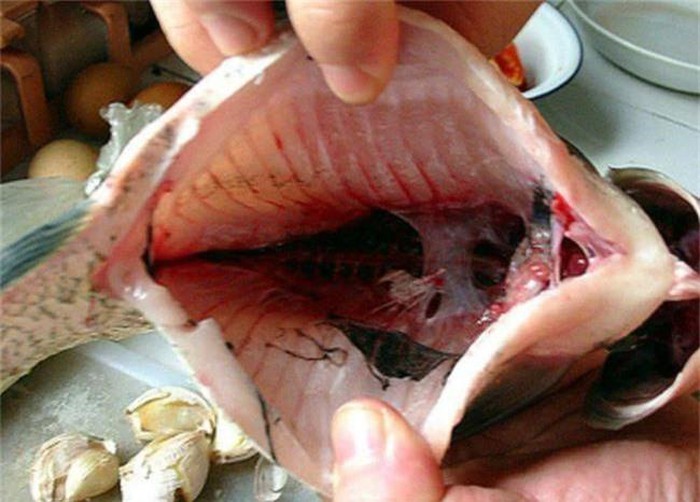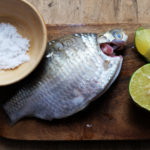Fish is a highly nutritious food for many families. However, preparing fish is not a simple task. If you don’t clean the following 3 parts, the cooked fish will have a fishy smell, significantly reducing the taste and quality of the dish. Specifically:
1. Fish scales and fins
Removing fish scales is one of the causes that make the fish fishy, even causing the oil to splatter when frying. Therefore, you should clean the fish scales and fins as follows. Take a piece of white radish, rub strongly from the tail to the head of the fish. The fish scales will be completely cleaned, making the fish tender and smooth. As for the fish fins, you can use scissors or a knife to remove them.
2. Fish intestines and fish bile

In order to prevent the fish from becoming fishy, losing nutrients, and even becoming toxic, the black membrane in the belly and the fish bile must be cleaned. These are the two parts that contain toxins, disease-causing bacteria, and a considerable amount of toxins for people eating them. You should cut a section under the belly, remove the black membrane, and rinse it multiple times under the faucet.
3. Fish guts
The fish intestines should also be removed. You should cut a small section near the anus, gently bend it, and pull it out, the gut will come out as well.
After cleaning the above parts, you should rub the fish with crushed ginger + white wine + salt for about 15 minutes to remove the fishy smell, ensuring the quality and taste of the fish. Do not use too much wine as it will affect the characteristic taste of the fish.
According to Health & Beauty



































